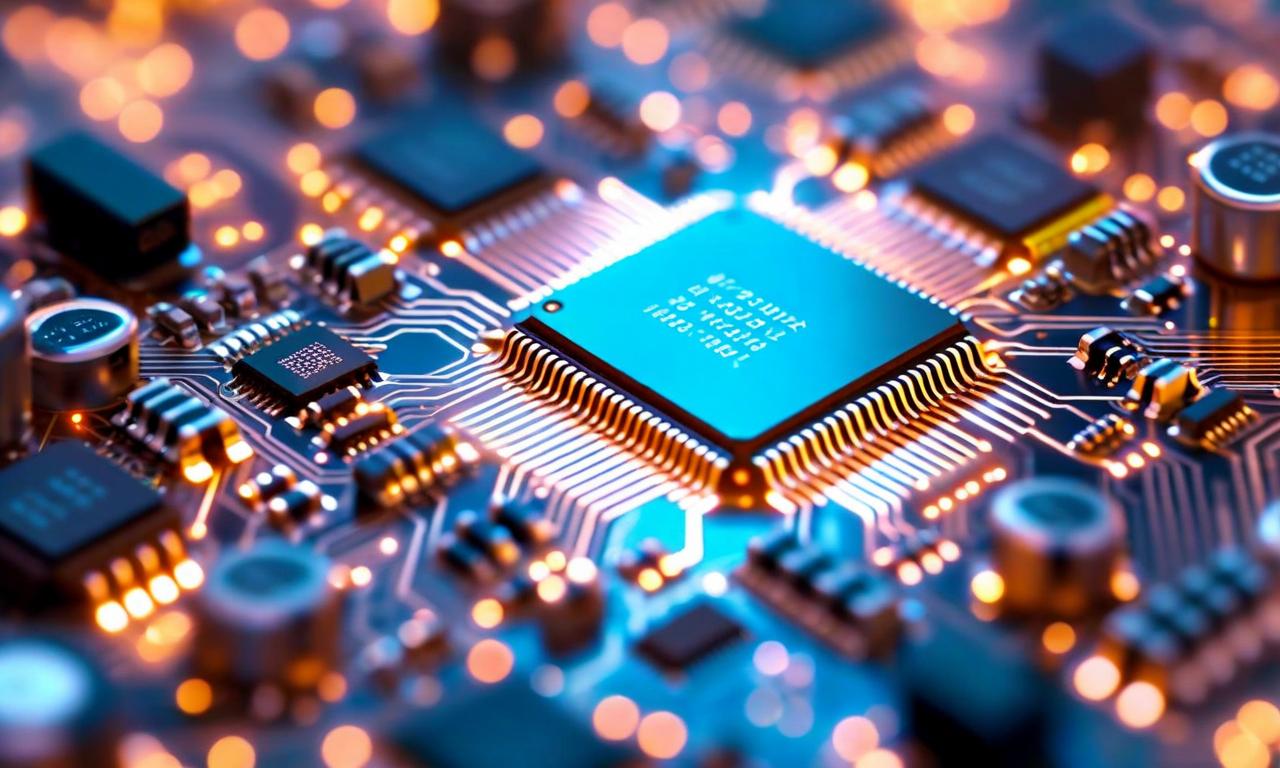US Government Secures 9.9% Stake in Intel with $8.9 Billion Investment
The US government has invested $8.9 billion in Intel Corporation, acquiring a 9.9% stake. This deal, funded by the Chips and Science Act, provides Intel with 433.3 million shares of common stock. The government also receives a five-year warrant for an additional 5% stake under specific conditions. Intel's total investment now reaches $11.1 billion. The announcement led to a 5.5% surge in Intel's stock price. Major tech companies like Microsoft, Dell, HP, and Amazon's AWS have pledged support for this initiative. The investment is driven by national security concerns over semiconductor production and marks a significant government intervention in the private sector.

*this image is generated using AI for illustrative purposes only.
In a landmark move that underscores the strategic importance of semiconductor manufacturing, the US government has acquired a significant 9.9% stake in Intel Corporation through an $8.9 billion investment. This unprecedented deal, funded by grants from the Chips and Science Act, marks a new chapter in government involvement in private industry, driven by national security concerns over semiconductor production.
Deal Structure and Terms
The agreement provides the US government with 433.3 million shares of Intel's common stock, positioning it as a passive owner without board representation or governance rights. This investment, combined with previously received funding, brings Intel's total investment to a substantial $11.1 billion.
As part of the deal, the government also receives a five-year warrant for an additional 5% stake at $20.00 per share. This warrant is exercisable only under specific conditions, namely if Intel sells majority control of its chip manufacturing business.
Market Response and Strategic Implications
The announcement was met with a positive market response, with Intel's shares surging 5.5% to $24.80. This reaction suggests investor confidence in the long-term benefits of the government backing.
Intel CEO Lip-Bu Tan expressed gratitude for the administration's confidence in the company. The deal comes at a crucial time for Intel, which has been facing challenges with declining sales and market share in recent years.
Industry Support and Competitive Landscape
The investment has garnered support from major technology companies, including Microsoft, Dell, HP, and Amazon's AWS, who have pledged their backing for the initiative. This broad industry support underscores the critical nature of semiconductor manufacturing in the global technology ecosystem.
However, analysts note that while the funding provides much-needed capital, Intel still faces significant challenges. The company needs to secure customers for its manufacturing operations and improve its technological capabilities to compete effectively in the global semiconductor market.
Political Context and National Security Considerations
The deal represents an unprecedented level of government intervention in a private American company, justified by national security concerns over semiconductor production. It follows earlier criticism of Intel's CEO by former President Trump, who now describes the deal as beneficial for both America and Intel.
Conclusion
This landmark investment by the US government in Intel marks a significant shift in the relationship between the public sector and the semiconductor industry. While it provides Intel with substantial financial support, the company's path forward will depend on its ability to leverage this investment to enhance its competitive position in the global market. The move also signals the government's commitment to maintaining a strong domestic semiconductor manufacturing capability, which is increasingly seen as critical to national security and technological leadership.





























